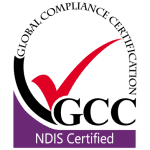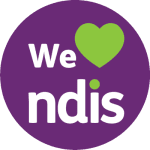Early Learning/ School Preparation or School readiness involves engaging children in activities in ensure a child develops the appropriate skills required to aid optimal learning when they start school. The development of these foundational skills allows teachers to expand and further develop a child’s skills in the specific area social interaction, play, language, emotional development, physical skills, literacy and fine motor skills. At Grace Occupational Therapy we work in collaboration with preschool teachers and early learning educators and become an extension of their centre to ensure we are all working towards the goal and achieving positive, long-term, functional outcomes. Our practice believes in supporting early educators and families wherever we can, so we encourage open communication between the parents, teachers and therapist.
A school readiness program refers to the daily activities programmed all year round to promote the development of skills which are optimal for children to possess before commencing school.
A transition to school program refers to the additional activities that are offered towards the end of the year (normally October – December) to help prepare children for a smooth transition to a school environment.
Objectives of the Program:
- The most important factor associated with a successful start and continued learning at school relate to a child’s social and emotional development and is a primary focus.
- To develop functional skills and abilities, and characteristics which promotes children’s ability to become successful learners.
- To familiarise children with school-based activities and independent completion of work.
- To increase ability to concentrate and focus on tasks.
You can tell a child is having problems with school readiness if they child:
- Gets easily frustrated when expectations are placed upon them
- Struggles to follow instructions in daily activities
- Relies on parents to do their self care tasks such as dressing and avoids or melts down when trying to learn new tasks
- Has difficulty learning unfamiliar or novel tasks
- Is not toilet trained
- Is socially unable to interact with peers
- Is unable to tolerate specific environments or unable to pay attention
- Has poor receptive and expressive language skills
- Has difficulty understanding consequences for their behaviours
- Has limited play skills, is unable to expand or be flexible with play concepts.
- Is not willing to engage in a new activities and/or be guided about how to develop new skills
- Has difficulty with planning and sequencing tasks
- Has difficulty with self regulation – the ability to obtain, maintain and change emotion, behaviour, attention appropriately for activities
- Experiences frequent meltdowns and/or experiencing inappropriate arousal levels.
If left untreated, difficulties with school readiness can lead to:
- Difficulties accessing the curriculum because foundational skills are not in place
- Difficulty with keeping up in class with peers
- Social isolation and difficulty with interacting with peers on a social level
- Difficulty with participating in typical play-based activities and making friends
- Avoidance behaviours with school-based activities
- Poor academic outcomes as the child may be in a negative state that is not conducive to learning.
- The child may become stressed and display anxious type symptoms as they realise their limitations and struggle with school.


